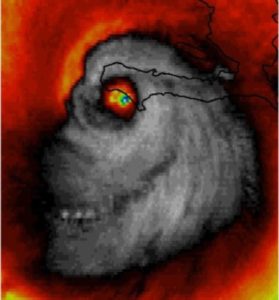Florida Court’s Jurisdiction Over Out-of-State Party in Domestic Violence Cases
Florida courts may only act if they have personal jurisdiction over the defendant, even in the case of alleged domestic violence. Having family in Florida, visiting Florida on vacation in the past, and sending a spouse and children to visit family in Florida are insufficient contacts to confer personal jurisdiction. Youssef v. Zaitouni, Case No. 2D17-926 (Fla. 2d DCA Feb. 14, 2018) [.pdf].
When is there personal jurisdiction over an out-of-state resident?
Husband, an Ohio resident, moved through counsel to vacate an injunction entered against him in Florida after his estranged Wife moved to Florida and sought and obtained a domestic violence injunction (DVI) against him. Husband argued that Florida did not have personal jurisdiction over him because he did not have sufficient contacts with Florida under Florida’s long arm statute, Section 48.193. The trial court found that family members residing in Florida and past visits were sufficient contacts with Florida to confer jurisdiction. In the alternative, the trial court invoked its “emergency jurisdiction over the minor children” under the Uniform Child Custody Jurisdiction and Enforcement Act, Sections 61.501-542, Fla. Stat. (UCCJEA).
The Second District Court of Appeal yesterday reversed the refusal to vacate the injunction, and remanded for dismissal for lack of jurisdiction. First, the court held that the contacts were not sufficient to confer personal jurisdiction under the long arm statute. Second, the court found that the UCCJEA governed custody proceedings, and did not create an independent basis for the trial court to exercise personal jurisdiction.
What does this mean for parties seeking domestic violence protection against an out-of-state spouse or alleged abuser?
For the accused party, we recommend you contact a family law attorney right away to discuss your options and determine whether a motion to quash is appropriate in your case. If you appear in court or respond to the petition without a lawyer, you will likely waive this important defense.
For those seeking protection, we recommend you be prepared to demonstrate the accused’s contacts with the state of Florida. If you cannot, you should consider instead seeking an injunction in the accused’s home state, and then having that injunction domesticated and enforced in Florida.
But please don’t take legal advice from a blog post. These cases are complicated, and it is best to consult an attorney with experience in these matters to get advice specific to your unique circumstances.
Dineen Wasylik and Jared Krukar of DPW Legal represented the winning party on appeal. DPW Legal focuses on assisting parties in navigating complicated procedural issue, both on appeal, and by supporting trial counsel.
Many thanks to the trial counsel in this case, Felicia Williams of Father’s Rights Law, P.A. who did an excellent job of preserving her client’s rights to appeal and to be heard in the proper jurisdiction. Check out Felicia’s video on what to do if you are served with a domestic violence injunction.


